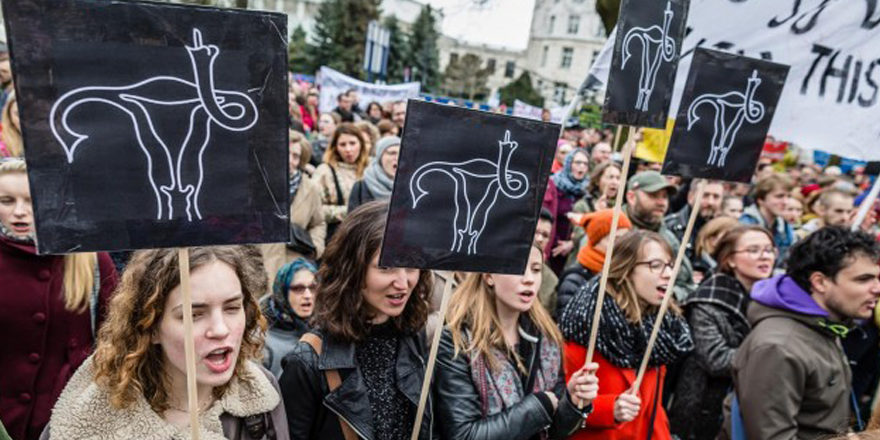Dear collegues,
It has again been a very busy week for us Parliamentarians here in Strasbourg.
To the observer it seems that problems don’t become smaller, but instead there are more and more growing conflicts that need our attention.
We discussed the difficult situation of and in Turkey, the ongoing conflict in Ukraine with all its consequences as well as many other topics that are of our concern.
I would like to shortly raise one more topic that should have been on our agenda this week: the recent events in Poland concerning the law on abortion.
On October 3rd , thousands of women and men rallied in the streets of Warsaw and other major cities to protest against a new law on abortion that was supposed to even toughen the existing law by introducing hard sentences on the concerned women and even their doctors.
The proposal would have banned the currently few legal cases for an abortion and would only have allowed abortion if a serious health risk existed for the mother.
In Poland, a minority group of catholic conservatives tries to impose their morals and values on the whole population and would have succeeded, if not for the mobilisation of thousands of women and progressive supporters.
We should support the polish women and men from the Czarny protest and congratulate them for their massive mobilization that resulted in the ruling PiS party finally deciding to withdraw its initial support of the proposal.
Nevertheless, the current legislation on Abortion in Poland is still one of the most restrictive laws in Europe.
In Poland, we see the true cleavage that exists on the one hand between European values based on humanism and fundamental rights and on the other hand every religion, including Christianism and the Catholic Church, that want to impose restrictions on fundamental rights, such as the right of a women over her own body.
There are currently about 2.000 legal abortions per year in Poland, but according to women’s groups, between 10.000 and 150.000 women have an abortion performed either illegally or in another country.
This actually proves that such a law is ineffective and discriminatory against poorer women who cannot afford to travel to another country to have an abortion and are left with dangerous, illegal methods.
We should keep in mind, that making abortion illegal does not reduce the number of abortions; it only reduces the safety of abortions.
The right to safe abortion, the right to decide when and whether to become a parent, and the right to a healthy sexuality are issues of human rights and of social justice aswell.
They therefore need to be dealt with here in Strasbourg.
Strasbourg, 14.10.2016
(Photo: deutschlandradiokultur.de)
